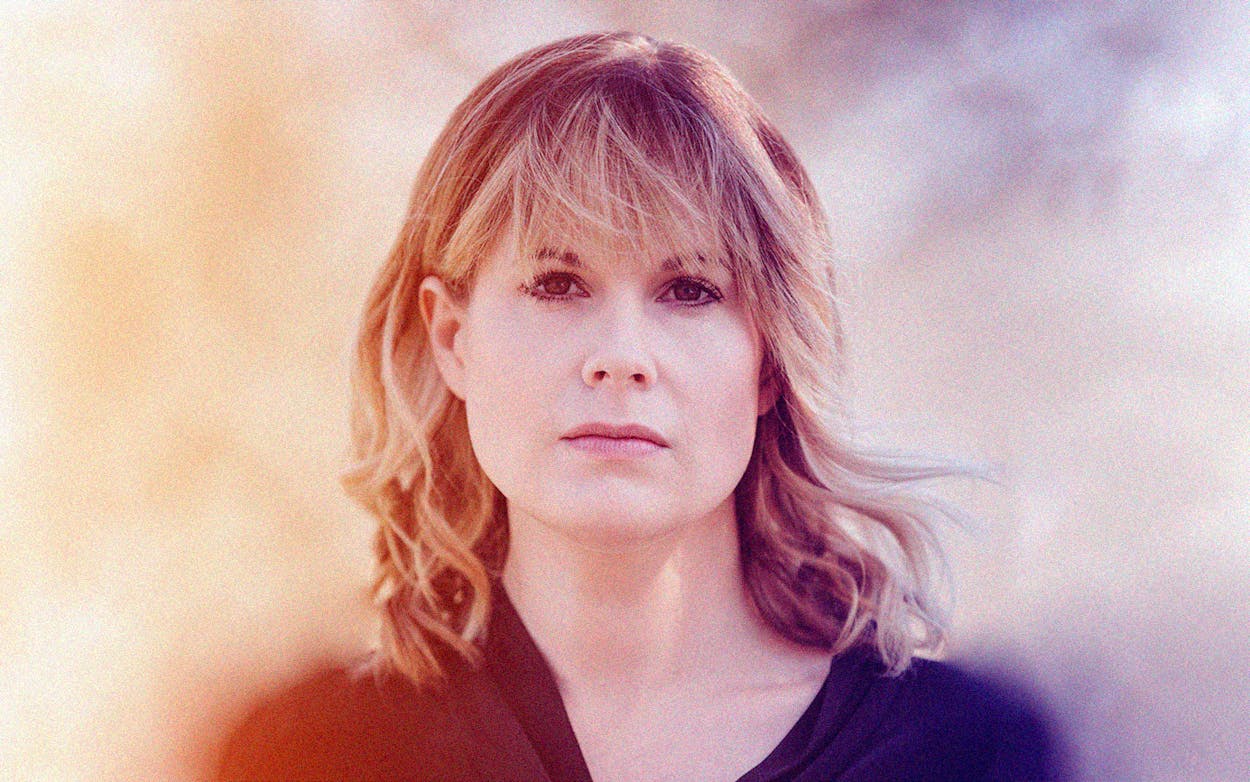Subscribe
At this weekend’s Texas Book Festival—which offers readings and discussions with 275-plus authors, including John Grisham and Malcolm Gladwell—among the most buzzed-about writers is a first-time novelist making her first appearance at the festival, Austin’s Lara Prescott. In June 2018, Knopf announced it won a fourteen-bidder auction involving 21 different imprints for the North American publishing rights to Prescott’s debut novel, The Secrets We Kept, which she fine-tuned while earning her MFA from the Michener Center for Writers at the University of Texas. Last month, with a 200,000-copy first printing, the book was an instant New York Times best seller, a pick for Reese Witherspoon’s book club, and Vulture called it “the season’s biggest debut novel.” There are also international deals in place for translations into 28 languages and plans for a film adaptation from the Ink Factory and Mark Platt Productions.
If that seems like almost too much action for a first-time author, Prescott herself wouldn’t disagree. She says there were times during the process of writing the book when she believed there might not be a market for historical fiction focused on the CIA’s efforts to engineer the publication of Doctor Zhivago in Russia. Prescott believes she may have benefited from the heart of her book—Russia and political propaganda—taking hold at the center of our news cycle, but critics seem almost universally sold on how deftly the book fuses dueling political thriller and romance plot-lines, laid out in the voices of five different female narrators. On this episode of the National Podcast of Texas, Prescott discusses her polyphonic approach to storytelling, the significance of banned books, and the story of the early CIA.
Three takeaways from our conversation:
1. At the center of The Secrets We Kept are the CIA’s real-life efforts to obtain a manuscript of Dr. Zhivago, which was banned by the Russian government for its depiction of the October Revolution and the Russian Civil War, as well as themes emphasizing individual freedom. The agency hoped to clandestinely print it and smuggle it back into the USSR.
“The early CIA was really progressive. They thought that books, and art in general, could be a force to change the world. So they invested in their books program, which spread about ten thousand pieces of literature back in the Eastern Bloc. And they also invested in abstract art and jazz. And I think it’s so fascinating to see that they never thought this was going to be an instant solution, that the Cold War would end after you read a book. It was all about planting seeds—that maybe they could provoke a citizen to wonder what else is being kept from them. Why was this book banned? Why can’t I write something like this and start to question things? It was definitely a long game.”
2. The most uncomfortable aspect of the success of her first novel was the pre-release round of publishing industry press reporting that it sold for $2 million at auction.
“That was something no one really wanted to get out there, but since it was an auction-style sale, and I didn’t actually go with the highest bidder, it was inevitable. But it’s shocking to me. Even with all these publishers bidding on it, I was going into it as a very pessimistic person, saying, ‘I hope someone picks it up someday. I’ll probably get a ton of rejections, and hopefully it will get out there in some aspect one day.’ So it still feels a little strange to me that it got published at all. And I’m a very private person, so to have a price tag floating out there is definitely a little odd.”
3. Plotting novels isn’t something emphasized in most MFA programs, nor it is something Prescott is fundamentally interested in, but with a story of historical fiction that involved multiple narrators across multiple continents, it wasn’t an element of the book she had the luxury of being able to ignore.
“I think of plot as a foundation of storytelling, all the way back to the oral tradition, where writers had to ask, ‘How am I going to get people to keep listening to me?’ Because you can just close the book at any time. And I’m always thinking I don’t want the reader to close the book. And I’d also argue that my MFA program was pretty different. I think that plot isn’t a dirty word at the Michener Center. It was founded by James Michener, so it has that storytelling bent to it. But I do think certain people might think leaning on plot is an easy way out, but to me it’s certainly not an easy way out. It’s extremely difficult to write a good plot.”






